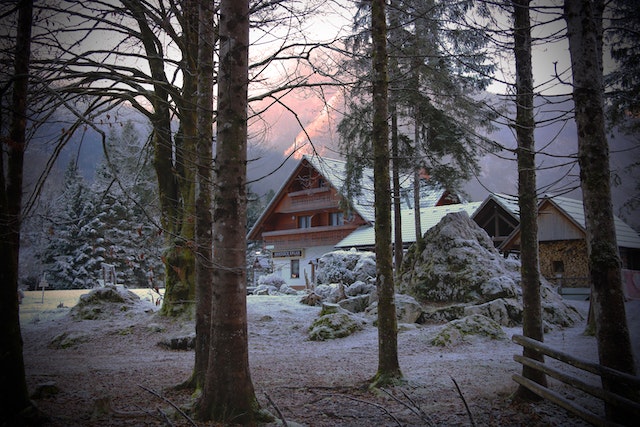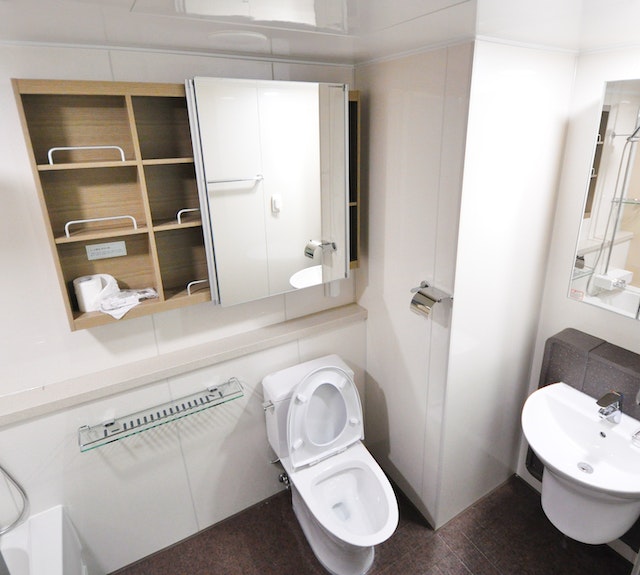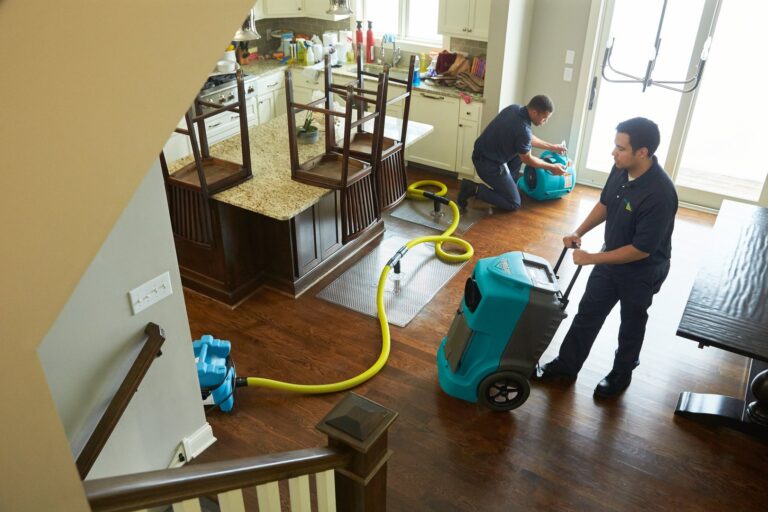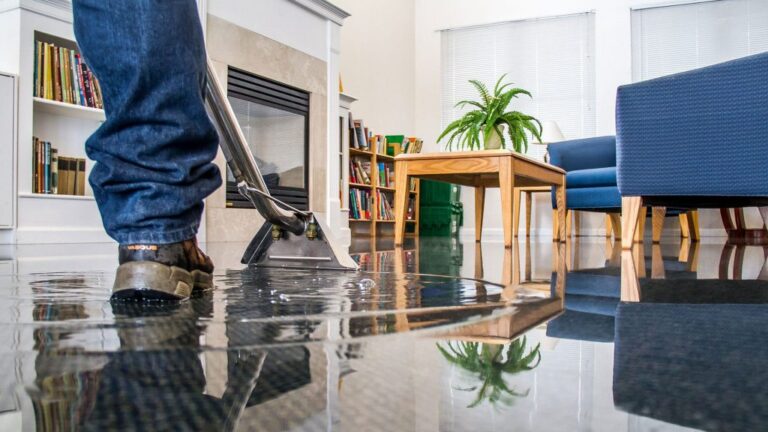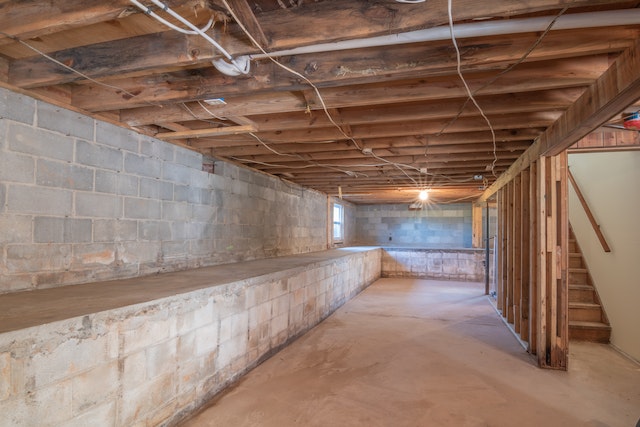Tennessee weather is typically mild, but extreme weather patterns can lead to a burst pipe in winter. If you don’t take the necessary steps to avoid frozen pipes, you may be left with expensive repairs and damaged personal belongings. If you do experience frozen pipes and the excess water pressure leads your pipes to burst, you’ll need to take certain steps to avoid further damage.
We have compiled a list of steps to take after your frozen pipes burst. We’ll also review a few tips to help prevent burst pipes from happening to you during freezing temperatures in Tennessee.
Why Do Pipes Burst in the Winter?
Pipes burst in the winter because frozen water expands. As the frozen water expands and takes up more room in the pipes, it creates a pressure that eventually causes the pipes to burst.
Despite common misconceptions, pipes don’t burst because of the ice. Instead, they burst from the excess pressure caused by the dense state of the ice.
Pipes burst in freezing weather, usually when temperatures go below 20 degrees Fahrenheit or lower. Additionally, fluctuating temperatures throughout the day puts extra pressure on the pipes, possibly leading to burst pipes. Eventually, if the pipe has too much water pressure inside, it will explode.
Signs of Burst Pipes From Freezing Temperatures
Some signs of burst pipes in the winter may include having no water, pieces of ice coming through your faucet, or a bad water smell. You may also hear a loud gushing or popping noise when the frozen pipes burst. Some homeowners may also notice lower water pressure, visible water damage, or frost-covered pipes.
In addition to knowing the most common signs of burst pipes, you can also take steps to prevent pipes from freezing, including ensuring proper insulation and making prompt repairs.
If you plan to be away from home for an extended period of time, especially during the winter months, taking certain precautions before leaving can help avoid an expensive burst pipe.
What To Do When Frozen Pipes Burst – Steps To Control the Damage
Frozen pipes can lead to burst pipes that can cause water damage in your home. Take the following steps after a frozen pipe burst to minimize damage and protect other parts of your home’s plumbing system:
Turn Off the Water Supply
One of the first things to do when frozen pipes burst is to turn off the water supply. When pipes burst, they’ll continue leaking. Left unrepaired, you can expect a significant amount of standing water that will eventually damage your home and lead to mold.
Excess water can also soak your home’s walls and ceilings, leading to expensive repair needs. You’ll usually find the water supply near the water meter.
It’s always a good idea to identify the location of your water meter and shut-off valve when you first purchase the home so you can take immediate action to prevent an emergency during freezing weather. Some homeowners may find their shut-off valve in the home’s crawl spaces.
Make sure everyone in the household knows where the water valve is and how to turn it off. If you rent your home or apartment, you may not have access to the water supply valve. In this case, you’ll need to contact your property manager or landlord as soon as possible so they can turn off the water supply and prevent additional damage.
Contact a Tennessee Plumber and Local Water Remediation Company
You’ll most likely need a professional plumber to repair your frozen pipes. Since frozen pipes can be a plumbing emergency, you may want to contact a 24-hour plumber. A professional water damage restoration company is also important when frozen pipes burst.
The right remediation company can help you find an emergency plumber and begin cleaning as quickly as possible to minimize damages. It only takes around 48 hours for mold to begin. Additionally, standing water can damage your home’s floors, walls, and furniture. A restoration company can begin drying out the space and help you minimize damage.
A ruptured pipe usually requires prompt attention to minimize the risk of structural damage, meaning it’s usually best to work with a company that offers late-night or weekend appointments.
Working closely with a professional restoration company also helps you check other important tasks off your to-do list. Tennessee homeowners can work with Nashville Water Damage Restoration to schedule repairs, provide repair estimates, assist them in filing an insurance claim, and answer all burst pipe flood and cleanup-related questions.
Turn off the Electricity If Needed
In some cases, you may also want to turn off the electricity. Mixing water damage and electricity is never a good idea. Turn off the electrical power supply to the home and avoid turning it back on until repairs are complete.
If you don’t need to turn off the home’s electricity, it may still be useful to unplug any appliances in the area where the frozen pipes burst. Turn off the electricity with dry hands to avoid electrical shock.
Drain the Water System
After turning off the water, you’ll want to drain all the pipes. Otherwise, if any additional pipes burst, it could lead to even more water damage. You can drain the water by turning on all the faucets in your household. This removes any leftover water supply and pressure in the pipes.
Address Leakage and Document Damage
Once a frozen pipe bursts, you’ll want to minimize damage and ensure proper cleanup. It may be a good idea to take photographs of the damage from the burst pipe to show the insurance company. If you’re not sure what to document, work closely with your property recovery company to file your insurance claim.
If possible, you may apply temporary fixes to the burst pipes to prevent more damage. However, in the meantime, you’ll still want to avoid turning the water back on until a professional says it’s safe.
Be sure to look for any structural damage in and near the pipes. Even a small amount of water damage can lead to rotted or decayed wood.
A frozen pipe can create a dangerous situation too. Make sure you check the walls and ceilings for signs of water damage. If a pipe bursts, it may leak and cause the ceiling to cave in.
Prioritize Safety
A consistent water leak can also damage the floors and make them unsafe. You should always contact a professional to make repairs to your home plumbing that involve its structural integrity.
Additionally, if the frozen pipe burst more than 24 hours ago, your home may have already been exposed to mold. It can take a few days for physical signs of mold to show on your home’s exterior walls or ceilings, but this doesn’t mean it’s not already behind the walls or in the ceiling.
If mold is present, you may need protective equipment to begin the cleanup process. This includes rubber shoes, gloves, and a protective mask.
Once mold begins to grow, it progresses quickly, making it more difficult to remediate. Eventually, mold can become a household risk, putting you and your family in danger of respiratory issues. The expert experience of a mold remediation company can put your mind at ease and ensure that you and your family breathe clean air.
Notify Your Insurance Company
Many homeowners insurance policies cover water damage, so you’ll want to notify your provider. Your agent and remediation expert will work with you to document the damage and contact the necessary professionals you need to fix the damage.
Some insurance companies require that you notify them of household damage within a specific time frame. Not informing them of a frozen or ruptured pipe as soon as possible could lead to them denying your claim.
Most insurance companies do allow you to begin drying and cleaning up the water damage before contacting them. However, you’ll want to make sure you have ample evidence first. Insurance companies also allow Tennessee homeowners to work with a professional remediation company.
Begin Drying
When frozen pipes burst, they often leave behind a lot of water damage. After documenting the damage and contacting a mold removal and remediation company, it can be helpful to begin drying the room. Soak up any large puddles of water. You can use towels or old newspapers to soak up some flood water.
Using floor fans in the room can also help dry the carpets and cabinets. Leave cabinet doors open to allow airflow to begin drying them out.
Prep the Room for Water Remediation
It can also be helpful to prep the room for the water remediation company. Remove all furniture and personal belongings as fast as possible to limit damage.
Depending on where and when the frozen pipe bursts, you may be able to save some of your furniture. Remove all electronics from the room to avoid a dangerous hazard.
Prevent Additional Pipe Bursts
Homeowners can also take certain steps to prevent additional water lines from bursting, such as reducing water pressures inside the pipes and ensuring constant water flow. This includes insulating unheated areas and keeping the thermostat higher during winter weather. You might also keep water flowing steadily during colder days to avoid ice accumulation in the pipes.
If your pipes are already frozen and at risk of freezing and bursting, you may be able to take steps to avoid further damage. For example, avoid using boiling water to warm up the other pipes. Applying too much heat to cold pipes can lead to more damage. Instead, use lukewarm cold water or warm air to heat the pipes slowly.
Is a Frozen Pipe an Emergency?
A frozen pipe is usually an emergency. Sometimes, you can prevent a frozen pipe from bursting, but you usually only have a few hours to do so. Experts suggest you have just 30 to 60 minutes to prevent a frozen pipe burst.
Additionally, if the broken pipe bursts, timely repairs can minimize the cost and extent of water damage to your home. If water freezes in one of your pipes, it may also be frozen in the other pipes. Ensure you check all water pipes and the water pressure in each of your home’s sinks.
If you suspect your pipes are frozen, it may be worth it to contact a 24/7 plumber. After pipes freeze and burst, they typically lead to thousands of dollars in damages. If your pipes are frozen but haven’t yet burst, you could save thousands of dollars by contacting a plumber.
Because burst pipes aren’t from the ice but from the water molecules turning to ice and back to the water, it’s important to take extra care when de-freezing pipes. Applying too much heat to frozen pipes too quickly can cause them to burst.
A professional plumber can advise you on how to unfreeze your pipes safely. This may involve using a hair dryer, warm air, or towels. Not all plumbing companies offer emergency response services, which is another reason why a phone call to a local remediation company should be the first thing you do.
What Happens When a Water Heater Bursts?
Frozen pipes can also lead to a water heater bursting. A burst water heater is also an emergency. Typically, a heater heater stops water flow once it’s full. However, a burst pipe could push water out of the tank and all over your home. It could also cause the water in the tank to back up and explode.
Frozen pipes are usually a plumbing emergency, but a burst water heater almost always requires immediate attention. An exploding water heater can be dangerous to everyone in the household. The heater could burst depending on the pressure inside, leading to metal and hot water exploding all over the household.
Does Insurance Cover a Burst Pipe Due To Freezing?
Your homeowner’s insurance policy may cover the water damage when a frozen pipe bursts. However, few policies cover frozen pipe repair. This means you’ll have to pay for the pipe repair costs out of pocket.
Of course, there are a few situations where your homeowner’s policy may not cover the damages, including a lack of maintenance, frozen pipes from negligence, or following a damaged system.
When Won’t the Insurance Company Cover Water Damage?
The insurance company may not cover a burst pipe in the case of negligence. A few examples of negligence may include failing to make necessary plumbing repairs or not adding sufficient building insulation to the plumbing.
Even if your insurance policy covers your water damage, most companies require careful documentation of the cause (the pipe) and damage. Make sure you take ample photos of the damage.
A video walk-through of the household, including your belongings, can also help support your insurance claim. Make sure you capture this evidence before drying or cleaning up the mess. Don’t forget to show evidence of the burst pipe. Even if the insurance company doesn’t cover the pipe repair, they’ll still expect you to show the cause of the water damage.
You can still contact a remediation company to begin cleanup if you have all the necessary evidence. Additionally, some companies will document the damage for you and potentially even work with the insurance company to file your claim.
How To Prevent Pipes from Bursting in Cold Weather
You can take certain steps to prevent your pipes from freezing in the first place. The good news is that freezing weather isn’t common in Tennessee. Most homeowners will also have sufficient warning when temperatures are expected to drop below freezing.
Here are a few prevention tips to avoid a pipe freezing in winter:
Cover Exposed Pipes
Covering exposed pipes can help keep the water lines warmer. You might also keep the cabinet doors open on cold nights to allow your home’s heat to reach your pipes.
Heat tape is also easy to apply and does an excellent job of preventing cold areas in your pipes. You can easily apply heat tape to a pipe by laying it flat against the pipe.
Take extra care to seal or cover pipes most likely to freeze and burst, including ones near windows or doors. You can apply foam or caulk to any cracks in the walls or floors near a pipe that is at risk of bursting.
Add Insulation to Rooms Without Heat
Ensuring proper insulation in rooms without heat can also help protect your home plumbing system. Adding foam sleeves can protect your pipes while preventing them from freezing and bursting.
You can also insulate a pipe. You can use heat lights or expanding foam while installing your plumbing system. Shine a heat light on the exposed pipe during colder nights.
A circulating pump can also help keep the water in your pipes warm enough. Adding an extra layer of insulation to the doors and windows in the home near an exposed pipe can also help keep your plumbing warm.
Use a Temporary Heat Source
The furnace in your home should be enough to heat your pipes. However, you may need a temporary heat source if you lose power or heat in winter. You can also help control the pressure inside the pipes during power outages by letting the water drip.
Allow Your Faucets to Drip
Leaving standing water in your pipes can cause them to freeze and burst. Allowing your faucets to run when the temperature drops can prevent ice from forming in the pipes.
A closed faucet during extreme cold temperatures increases the chances of a freezing pipe. Leaving still water in the indoor pipes is never a good idea during cold weather. Instead, turn all the faucets in your home onto a slow drip.
You may notice a slight increase in your water bills during these months, but this cost is far less than what a burst pipe repair and remediation service may cost.
Keep Your Thermostat at an Appropriate Temperature
Some homeowners may drop their thermostats to save money on heating. It’s best to keep the heat on in your home during extreme temperatures. Ensure your home is heated properly during winter, even if you’re away from home for a long time.
A thermostat is important, but it shouldn’t be the only step you take to protect your home’s plumbing. Turning the heat on may do little in parts of the household without heat. You’ll want to protect the pipes from freezing in these rooms.
Take Extra Care When Away From Home
Many homeowners are subject to a burst pipe when they’re away from home for an extended period. Putting a plan in place to protect your plumbing when away is essential.
A smartphone-controlled thermostat allows you to adjust your home’s temperature remotely. This means you can prevent frozen water pipes by increasing the thermostat, even when you’re not at home.
Ideally, try to keep your thermostat at a minimum of 68 degrees Fahrenheit. You may need to increase this during colder nights.
Make Prompt Repairs and Updates
Making prompt repairs can also help protect your pipes. The typical pipe repair takes just a few hours and is worth the minimized risk. A damaged pipe is more likely to freeze and burst.
Burst pipe presentation also includes making timely repairs. A common misconception about frozen pipes is that copper pipes are more prone to cold air damage.
However, the material isn’t as relevant to the risk of frozen pipes as its condition. Rusted or corroded pipes are more prone to damage from extreme cold than updated or newer plumbing systems.
Clean Your Pipes When Necessary
Depending on the extent of corrosion, you may be able to clean your pipelines to avoid damage. A flushing kit involves pushing water through your lines to get rid of excess debris or rust that could lead to a water blockage.
However, make sure you avoid using harsh chemicals, such as detergent, which could affect the quality and safety of your water supply.
However, that being said, PVC pipes are less prone to freezing than copper pipes. Installing cold-resistant pipes can also help prevent pipes from freezing. Cold-resistant pipes are made with durable materials that expand and contract better with fluctuating warm and cold water.
Learn How to Unfreeze Pipes Before They Burst
Sometimes, you can minimize damage to frozen pipes before they burst. If your pipe is frozen, you may be able to safely thaw them yourself with the following steps:
Locate the Frozen Pipe
Before defrosting the pipe, you’ll need to locate the frozen part.If you can’t find the frozen pipe, contact a professional as soon as possible.
Even a single frozen pipe can indicate a problem with your home plumbing system. Contacting a 24/7 plumber to check the home’s other pipes may be a good idea.
Heat the Frozen Area
Never add boiling water to a frozen pipe. Thawing a pipe too quickly will usually lead to it bursting. Instead, use a heating pad or hair dryer to warm the pipe slowly.
Protect Pipes
It’s also important to protect other pipes in the household which may not yet be frozen. A frozen pipe doesn’t always burst. If you can safely remove the ice blockage, you can prevent a frozen pipe from turning to solid ice and bursting. However, you usually have just a short period of time before frozen pipes burst.
Whether or not pipes burst after becoming frozen depends on their location, the material, the plumbing system’s age, and the quality of installation.
Dealing with a Frozen Pipe That Burst in Your Tennessee Home? We Can Help!
Freezing and bursting pipes are a risk during Tennessee’s winters. Timely repairs and water remediation is crucial to preventing mold growth and minimizing damages. You can also take other steps to protect your home’s plumbing, including avoiding a closed faucet and ensuring insulation of all exterior walls.
Contacting a remediation company at the first indication of a frozen pipe can also help you minimize structural damage and mold growth. Nashville Water Damage Restoration connects Tennessee homeowners with prompt repairs and expert remediation services. A frozen pipe is never convenient, but with the right company helping you through it, you can return to normal as quickly as possible.

